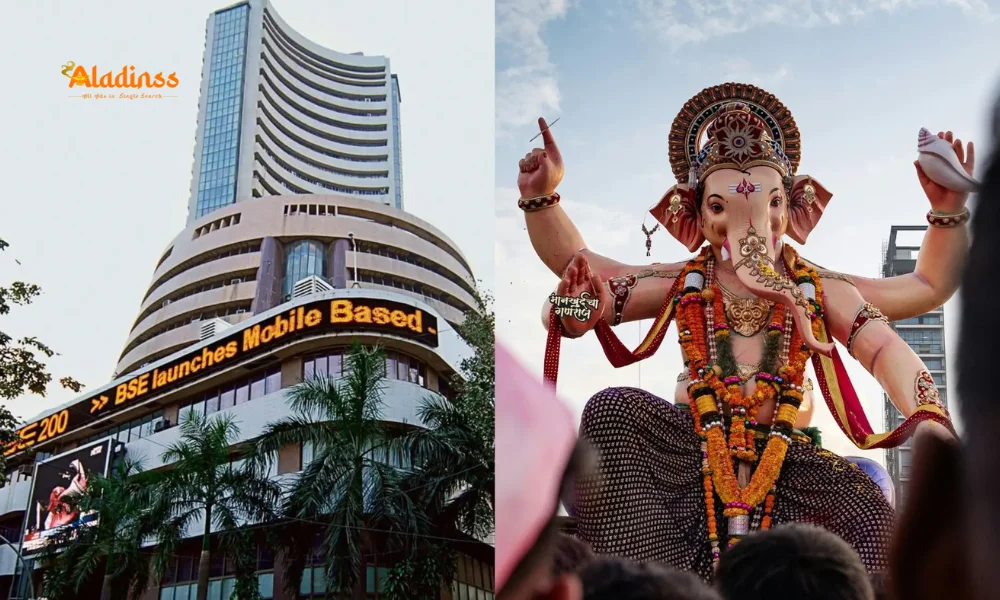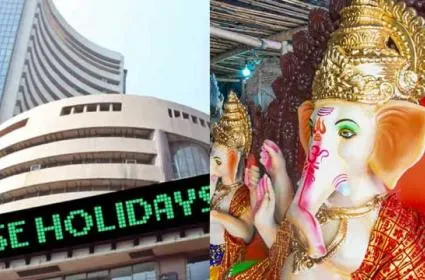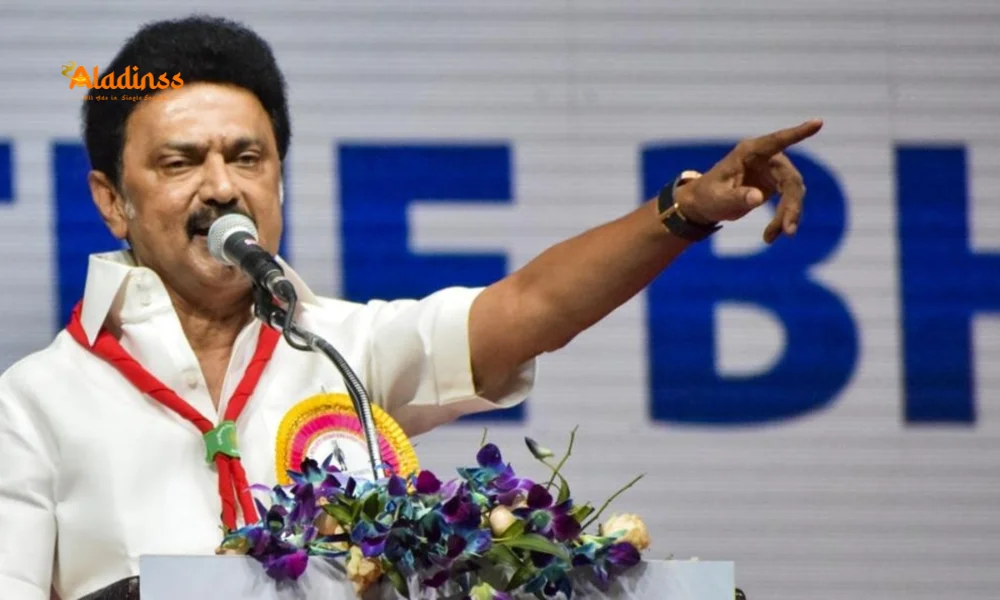Ganesh Chaturthi 2025: Indian Stock Market Closed Today

Ganesh Chaturthi 2025: Indian Stock Market Closed Today
The Indian stock market, including the National Stock Exchange (NSE) and Bombay Stock Exchange (BSE), is closed today, Wednesday, August 27, 2025, in observance of Ganesh Chaturthi, a significant Hindu festival celebrated with fervor across Maharashtra. This closure marks the second trading holiday in August, following the Independence Day holiday on August 15. Investors and traders will need to wait until Thursday, August 28, for markets to resume normal operations. The holiday comes at a critical juncture, with markets experiencing a broad-based sell-off in the last session due to cautious investor sentiment amid the introduction of a 50% tariff on Indian exports, effective today. This article provides a detailed overview of the market closure, affected segments, upcoming holidays, and the potential market outlook post-holiday.

Why Is the Stock Market Closed Today?
Ganesh Chaturthi, also known as Vinayaka Chaturthi, is a state holiday in Maharashtra, where both the NSE and BSE are headquartered in Mumbai, the financial capital of India. This vibrant 10-day festival, which celebrates the birth of Lord Ganesha, the deity of wisdom and prosperity, is marked by elaborate rituals, idol installations, and community celebrations. Due to its cultural significance, the BSE and NSE observe a trading holiday on August 27, 2025, as confirmed by the official stock market holiday list on the BSE website. The closure aligns with the Maharashtra state government’s declaration of Ganesh Chaturthi as a mandatory public holiday, bringing a pause to the bustling activity of Dalal Street.
The holiday provides a much-needed breather for investors, especially after a turbulent trading session on August 26, where the Sensex and Nifty indices fell over 1%. The decline was driven by concerns over the 50% tariff on Indian exports, which came into effect today, August 27. This tariff, announced by the US administration, has raised fears of its potential impact on export-oriented sectors, contributing to the cautious sentiment in the markets. The closure allows traders to reassess strategies and monitor global cues, with the true impact of the tariff likely to become clearer when trading resumes on Thursday.
Affected Market Segments
The Ganesh Chaturthi holiday affects multiple segments of the Indian financial markets. Trading is suspended across the following segments on both the NSE and BSE: equities, equity derivatives, securities lending and borrowing (SLB), currency derivatives, and electronic gold receipts (EGR). Additionally, trading in the New Debt Segment (NDS-RST) and Tri-Party Repo segments is also halted for the day. This comprehensive closure ensures that no trading activity takes place in Mumbai’s financial hubs, impacting investors, traders, and institutions alike.
In the commodity markets, the Multi Commodity Exchange (MCX) is closed during the morning session from 9:00 AM to 5:00 PM, as per its official schedule. However, trading resumes in the evening session from 5:00 PM to 11:30/11:55 PM, allowing limited activity for commodities like bullion, energy, and base metals. In contrast, the National Commodity & Derivatives Exchange (NCDEX), which primarily handles agricultural contracts such as oilseeds and pulses, remains closed for the entire day. Banks in several cities, including Mumbai, are also closed today, as per the Reserve Bank of India’s holiday calendar, affecting cheque clearances and in-branch banking services.
Market Context and Recent Performance
The stock market closure comes on the heels of a challenging trading session on August 26, 2025, where Dalal Street witnessed a significant sell-off. The BSE Sensex plummeted by 849.37 points, or 1.04%, closing at 80,786.54, while the Nifty 50 dropped 255 points to end below 24,750. The downturn was attributed to investor caution ahead of the US-imposed 50% tariff on Indian exports, which has raised concerns about its impact on sectors like IT, pharmaceuticals, and textiles. Most sectoral indices closed in the red, with only the FMCG sector showing resilience, driven by domestic demand.
Analysts have noted that the tariff, combined with global market uncertainties, has contributed to heightened volatility. The India VIX, a measure of market volatility, rose by 0.25% on August 25, signaling increased uncertainty. The holiday-induced break, while limiting trading days, could amplify volatility when markets reopen, as traders react to accumulated global developments. Investors are particularly focused on foreign fund flows, US market performance, and commodity price movements, which could influence market behavior on August 28.
Upcoming Stock Market Holidays in 2025
The Ganesh Chaturthi holiday is one of several market closures scheduled for the remainder of 2025, as outlined in the BSE and NSE holiday calendars. Investors should plan their trading strategies around the following holidays:
- October 2, 2025: Mahatma Gandhi Jayanti/Dussehra – A national holiday commemorating Gandhi’s birth and the festival of Dussehra.
- October 21, 2025: Diwali Laxmi Pujan – A trading holiday, though a special one-hour Muhurat Trading session will be held to mark prosperity.
- October 22, 2025: Diwali Balipratipada – A holiday following Diwali celebrations.
- November 5, 2025: Prakash Gurpurb Sri Guru Nanak Dev – A holiday for Guru Nanak Jayanti.
- December 25, 2025: Christmas – A holiday observing the Christian festival.
These closures, combined with regular weekend breaks on Saturdays and Sundays, result in approximately 13–15 trading holidays annually for Indian stock exchanges. The absence of holidays in September, except for weekends, provides a brief window of uninterrupted trading before the busy festive season in October.
Market Outlook Post-Holiday
Analysts predict that the Indian stock market may face continued pressure when trading resumes on August 28, 2025. Ajit Mishra, Senior Vice President of Research at Religare Broking Ltd, noted, “With the Nifty slipping below its immediate support at the 20-day exponential moving average and the banking index breaching its critical base around 54,900, further downside cannot be ruled out.” He suggested that the Nifty could retest its medium-term moving average around 24,600, indicating potential for further correction.
Export-oriented sectors, such as IT, pharmaceuticals, and auto ancillaries, are expected to remain under pressure due to the 50% tariff, which could increase costs and reduce competitiveness in global markets. Conversely, domestic demand-driven sectors like FMCG and consumer discretionary may offer stability, as they are less affected by international trade policies. Mishra advised traders to monitor global market trends, particularly US indices, which influence Indian markets, and foreign institutional investor (FII) flows, which have been volatile amid trade concerns. Potential policy measures from the Indian government to mitigate the tariff’s impact could also play a crucial role in stabilizing markets.
Impact of a Truncated Trading Week
The Ganesh Chaturthi holiday, combined with the regular weekend closures on August 30 and 31, results in a truncated trading week with only four active sessions: August 25, 26, 28, and 29. This shortened schedule can lead to increased market volatility, as fewer trading days compress information flows and reduce liquidity. Large trades or sudden market movements can have amplified effects, potentially leading to wider price swings. The holiday also coincides with significant global developments, such as the US tariff implementation, which could influence investor sentiment when markets reopen.
Investors are advised to plan their trades carefully, focusing on sectors with strong fundamentals and resilience to external shocks. The banking sector, which has shown signs of weakness, will be a key area to watch, as will defensive sectors like FMCG, which have outperformed during recent volatility. The holiday break provides an opportunity for traders to analyze global market cues, including commodity prices and US market performance, to refine their strategies for the remainder of the week.
Comment / Reply From
No comments yet. Be the first to comment!











